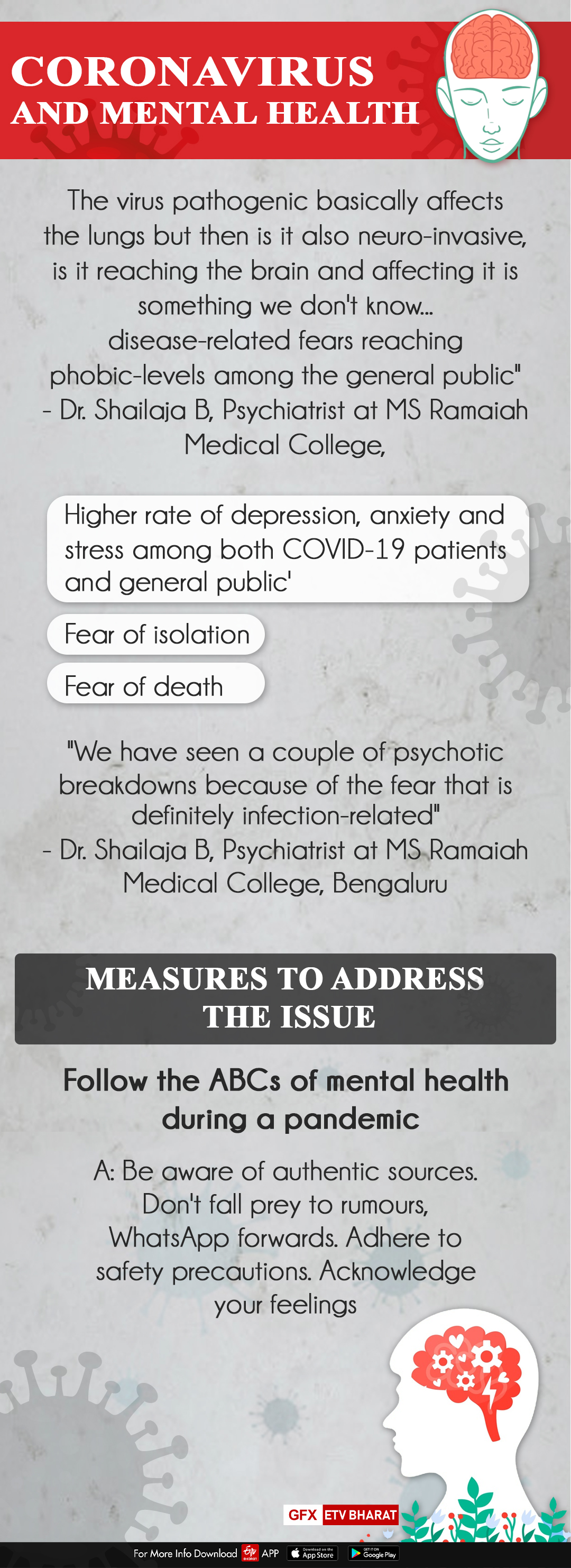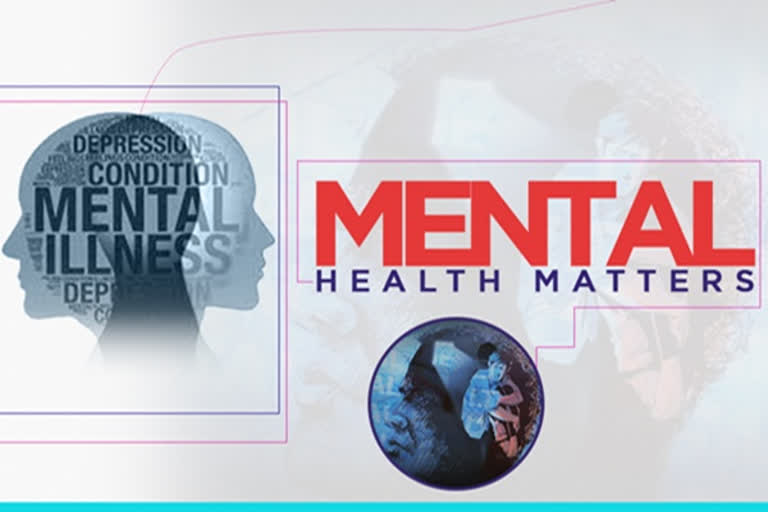Hyderabad: The recent death of popular television and Bollywood actor Sushant Singh Rajput, who was reportedly suffering from depression, has renewed the debate around mental health in India.
The National Mental Health Survey (NMHS) 2015-16 reveals that nearly 15 per cent of Indian adults need active intervention for one or more mental health issues.
It is in this context that Dr Shailaja B, Psychiatrist at MS Ramaiah Medical College, Bengaluru, in an exclusive interview with ETV Bharat, said that there is an urgent need for people to work on their "emotional intelligence" while stressing that the number of people seeking mental health treatment from professionals constitutes "only the tip of the iceberg".
"We all need to work on something called emotional intelligence. It means perceiving our emotion and understanding our emotions and regulating or managing them in an adaptive way. At the same time, we need to recognise and understand other's emotions as well...What we see in the clinical practice is just the tip of the iceberg. People who approach us constitute the tip and the iceberg is beneath the water and we are not able to see the proportion of people in need, " said Dr Shailaja.

Talking about depression, a mental health disorder which affects one in 20 Indians as per the NMHS, Dr Shailaja said that it is caused by a complex interaction between biological, psychological and socio-environmental factors while stating that the symptoms of this mental disorder vary from person to person among different age groups.
When asked if celebrities or those in the public eye are more prone to depression or suicide, Dr Shailaja said that there no such specific data pertaining to the entertainment industry, but pointed out, "in India, the highest rate of suicide is among daily wage earners. But when you talk about the United Kingdom, the suicide rate is high among farmers and doctors. In the US, it is high among minors, or those who serve in the forestry, and construction works. The recent loss of job and unemployment are also risk factors for suicide."
On depression leading to suicide, the psychiatrist said, "Approximately two-thirds of people who are depressed must have thought of committing suicide or ending their lives. But, only, say, 10 to 15 per cent would have actually attempted or committed suicide."
"But if you see it the other way, among people who have already committed suicide, approximately 95 per cent of them must have been suffering from one or the other form of psychotic disturbances. Out of this 95 per cent, majority, say 80 per cent must be depressed," she added.

Elaborating on the challenge faced by them in reintegrating psychotic spectrum back into the society or community once they are recovered or are in remission, Dr Shailaja said, "If you talk about psychotic disorder, there are two main spectrums. One is neurosis and the other is psychosis. Neurosis consists of common mental ailments we see in day to day lives such as depression, anxiety, stress, substance abuse. So, here the patient is aware that he or she has got a problem and wants help and there are no gross behavioural disturbances."
"When it comes to psychosis, this includes severe mental ailments such as schizophrenia and other forms of psychosis. Here the patient per se is not aware that he is ill. These patients are usually brought by family and in these patients, you see a lot of behavioural disturbance. So society by large is okay with the neurotic spectrum disorder, but not with a psychotic disorder, " added Dr Shailaja.
On the World Health Organisation (WHO) recently publishing an article by an international neurologist who talks about the mental health repercussions of the coronavirus pandemic, Dr Shailaja said that the exact cause of neuro-psychiatric features in Covid-19 patients is not yet known.
Also read: Cyberattack: J&K power department becomes ransomware's first target
"The virus pathogenic basically affects the lungs but then is it also neuro-invasive, is it reaching the brain and affecting it is something we don't know. Are there any other mechanisms for this neuro-psychiatric manifestation in COVID positive patients we don't know, " said the psychiatrist.

She further pointed out, "if you see the literature, what it says is that there is a high rate of depression, anxiety and stress, etc. among both COVID positive patients as well as the general public. The general public is also facing some disease-related fear that is reaching phobic-levels."
When asked about the ways in which people can deal with the COVID-19-induced mental health issues, Dr Shailaja listed out "ABCs of mental health" that are to be followed during a pandemic.
On the WHO citing internet addiction as one of the factors fuelling mental health disorders, Dr Shailaja said that it is a form of behavioural addiction often occurring jointly with depression, anxiety, Obsessive-compulsive disorder (OCD) or Attention Deficit Hyperactivity Disorder (ADHD) among children. Here the sufferer is unable to cut down his/her use of the internet while pointing out, "the classificatory system followed in India - International Classification of Diseases-10 or ICD 10 - doesn't recognise internet addiction as a disorder".




